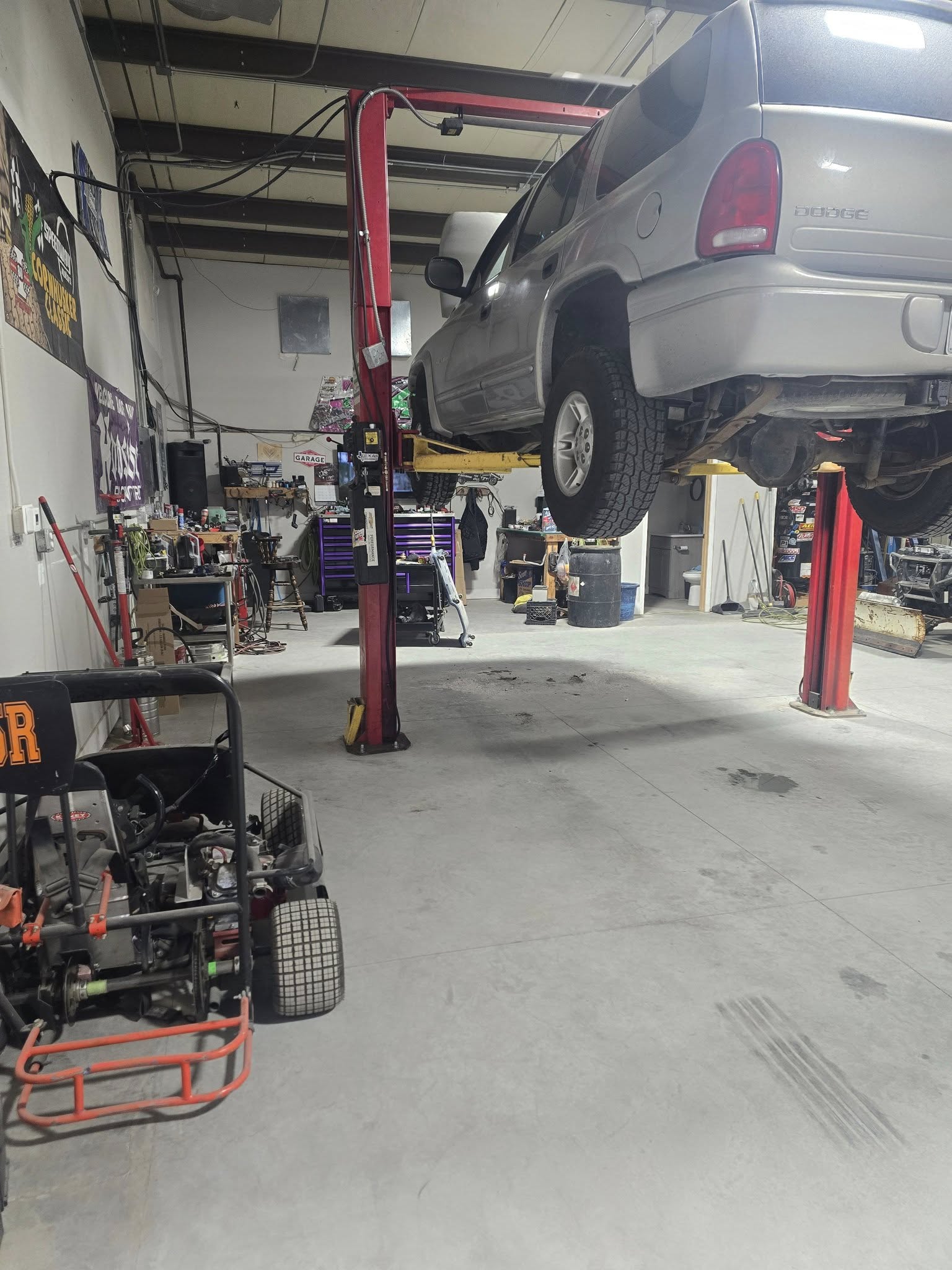Electric vehicles (EVs) and plug-in hybrid models are becoming increasingly popular in Lincoln, Nebraska — and for good reason. With fewer trips to the gas station, powerful performance, and quiet acceleration, they promise a smooth driving experience and peace of mind for environmentally conscious drivers.
However, Nebraska’s fluctuating climate — from icy winters to hot summers — presents unique challenges for maintaining electric battery power and maximizing the electric range of your vehicle. Understanding how weather impacts your EV’s battery health, and knowing what Lincoln drivers can do about it, can help you preserve EV drive mode, reduce charging issues, and extend the life of your investment.
1. Understanding EV Battery Health in Nebraska’s Climate
Temperature extremes — both high and low — can significantly influence the vehicle’s electric power and overall performance. In hot summer months, battery degradation accelerates due to chemical reactions inside the electric systems. Conversely, frigid winters can cause your electric range to drop dramatically.
A reasonable effort to store your EV in a garage or shaded area helps regulate battery temperature. Lincoln’s climate can change rapidly, so monitoring your charge status and using plug-in charging overnight can reduce strain and ensure your EV starts the day at optimal levels.
2. Why Temperature Affects Electric Battery Power
EVs and plug-in hybrid vehicles rely on lithium-ion batteries, which are sensitive to temperature fluctuations. Cold weather thickens battery electrolytes, reducing power output, while excessive heat can degrade the battery’s internal structure.
This is why many Lincoln Grand Touring models, including the Corsair Grand Touring and three-row SUVs, use advanced battery-powered technology of an electric motor combined with a twin-turbocharged engine. This balanced combination between gasoline engine power and electric battery power ensures reliable hybrid performance — ideal for Nebraska’s unpredictable seasons.
3. Plug-In Hybrid Vehicles: The Best of Both Worlds
If you own a plug-in hybrid electric vehicle (PHEV), such as the Lincoln Corsair, you benefit from both pure EV drive mode and a hybrid gas engine backup. This combination of gas and electric capability provides flexibility in varying weather conditions.
In pure EV mode, the car runs entirely on electricity, offering whisper-quiet cabin comfort and zero emissions. When temperatures drop or your electric range is low, the system seamlessly switches to gasoline engine power — preserving efficiency and extending your journey.
For most Lincoln drivers, this balanced combination provides fewer trips to charging stations and potential future tax savings, including federal tax credit options and state-by-state information available at afdc.energy.gov.
4. Charging Your EV Properly: Safety and Efficiency Tips
Whether you charge at home or public charging stations, proper installation and charging safety are crucial. Always hire a professional licensed electrician to install a dedicated line with a 20-amp AC breaker or grounded three-prong outlet to prevent electric shock or breaker trips.
Avoid using an extension cord or surge protector with your mobile power cord, as they can overheat and damage your charging system. Proper charging ensures your vehicle’s electric power remains stable and your electric systems are not overloaded.
Keep an eye on your intuitive light ring or charge port indicator — these display your current level of charge and help you plan fewer trips to the nearest station or public charging network.
5. Regenerative Braking: Recovering Energy for Later Use
A remarkable available feature in modern plug-in hybrid models is regenerative braking — a system that recaptures kinetic energy lost during braking and stores a portion of this energy for later use.
This not only extends your electric range, but also reduces wear on brake pads, improving fuel efficiency and overall vehicle longevity. It’s a smart way for Lincoln drivers to maintain a balanced combination of power, especially in stop-and-go city streets or during highway commutes.
6. Understanding Nebraska’s Charging Infrastructure
The network of North American public charging stations continues to expand throughout Nebraska, with new charging locations appearing along O Street and major routes across Lancaster County.
Most Lincoln retailers and local municipalities offer plug-in charging access, often with special access to high-occupancy vehicle lanes for pure EV mode users. This expansion is making EV ownership increasingly practical for local Lincoln drivers.
However, always confirm accuracy of the information and reasonable date of posted listed rebates or potential federal income tax credits, as they can vary by region and applicable tax conditions.
7. Maintaining Your EV Battery: Routine Checks and Long-Term Health
Just like conventional vehicles, EVs need routine maintenance to ensure optimal performance. Regular battery service checks and diagnostic scans help identify issues early, preventing further damage or sudden failures.
Have your battery’s condition checked at least twice a year — ideally at a trusted auto repair shop like One Shot Auto Repair in Lincoln, NE. Their team of certified technicians provides comprehensive electrical system inspections, ensuring your vehicle’s electric power and charging components function properly.
Ask about free battery testing, battery replacement, and inspections of secondary electrical systems, including power windows and charging circuits.
8. Winter Tips for Lincoln Drivers: Protecting Your Battery
During Nebraska’s cold winters, preserve EV drive mode by preconditioning your EV while it’s plugged in. This warms up your battery and cabin using external power, saving valuable electric range.
Also, keep your charge port clean and dry, and avoid using public chargers during freezing rain when ice buildup could interfere with proper charging. If you park outdoors, consider using a thermal blanket for your battery pack to minimize heat loss overnight.
9. Summer Heat Precautions: Preventing Battery Overload
In summer, higher temperatures can cause your electric systems to overheat. Park in shaded areas whenever possible, and use plug-in hybrid mode during long trips to distribute power demands between the electric battery and gas engine.
Avoid rapid charging multiple times in a row, as it increases battery temperature and reduces long-term capacity. If your charging location lacks shade, consider installing a covered charging station or using off-peak hours for cooler conditions.
10. Buying or Leasing a Plug-In Hybrid: Important Considerations
When evaluating the purchase of a PHEV or lease of a plug-in hybrid, it’s essential to check warranty terms carefully. Always verify whether coverage includes battery degradation, as not all manufacturers offer a warranty of any kind for battery health over time.
Consult your Lincoln retailer or visit afdc.energy.gov for the latest federal tax credit details, potential future tax savings, and state-by-state information for Nebraska residents.
If you’re unsure which EV model suits your automotive needs, One Shot Auto Repair can provide a professional recommendation based on your driving habits, range requirements, and charging access.
11. EV Battery Health: A Smart Investment for the Future
Maintaining electric battery power is not just about keeping your EV running — it’s about safeguarding your long-term investment. By following proper charging practices, scheduling routine inspections, and working with experienced service professionals, Lincoln drivers can enjoy powerful performance, longer range, and peace of mind year-round.
At One Shot Auto Repair, our ASE-certified team combines years of experience with honest, high-quality service for modern vehicles, plug-in hybrids, and pure EV models. Whether you need battery maintenance, charging diagnostics, or a system inspection, you can count on trusted local care that keeps your EV in top shape through every Nebraska season.
Conclusion
Nebraska’s climate may be unpredictable, but your EV’s reliability doesn’t have to be. By understanding how temperature affects your electric battery power, maintaining your charging habits, and scheduling routine maintenance with a reputable auto repair shop like One Shot Auto Repair, you’ll ensure your EV or plug-in hybrid performs at its best for years to come.
So, whether you’re driving through Lincoln’s city streets, exploring Lancaster County, or planning fewer trips to public charging stations, remember — a healthy EV battery starts with knowledge, prevention, and professional care.

